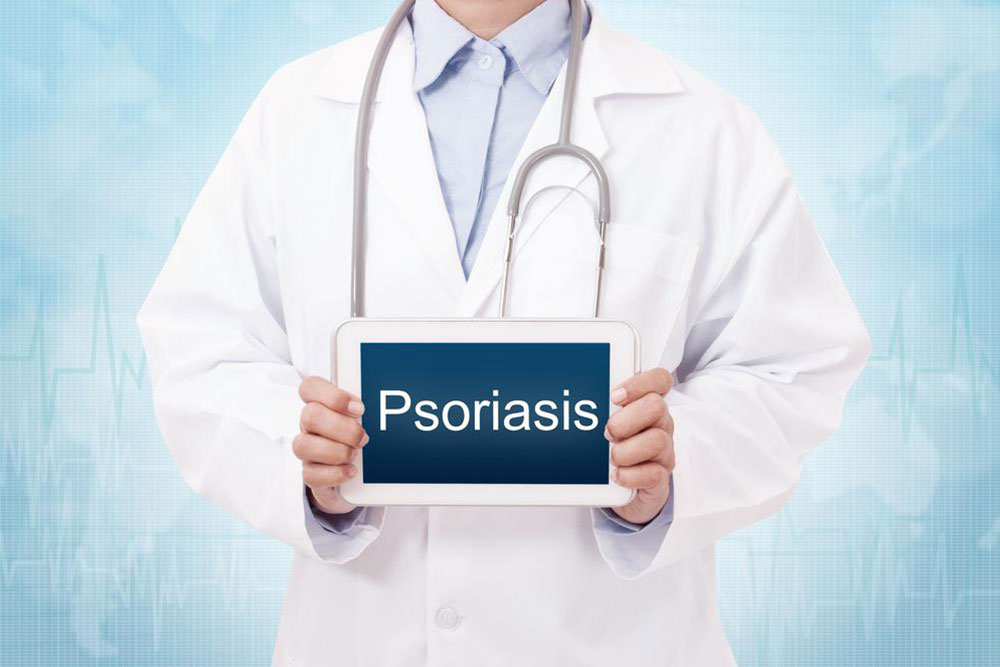Comprehensive Guide to Managing and Treating Plaque Psoriasis Effectively
This comprehensive guide explores effective strategies for managing plaque psoriasis through a detailed overview of topical treatments, systemic medications, phototherapy, and emerging therapies. Emphasizing personalized care, consistency, and lifestyle modifications, it aims to empower patients to achieve better skin health and improved quality of life by understanding various treatment options and the importance of ongoing management.

Effective Strategies for Managing and Treating Plaque Psoriasis
Understanding how to manage plaque psoriasis effectively is crucial for those affected by this chronic skin condition. Early intervention and tailored treatment approaches can significantly reduce symptoms, improve quality of life, and prevent disease progression. Recognizing the importance of prompt treatment and ongoing management helps patients achieve better control over their condition. This comprehensive guide explores various treatment options, lifestyle adjustments, and emerging therapies designed to alleviate symptoms and promote skin health.
Plaque psoriasis, characterized by thick, scaly patches on the skin, results from an overactive immune response that accelerates skin cell production. The severity can vary from mild patches to extensive involvement, requiring customized treatment plans. Proper management involves not just medication but also careful skin care routines, avoidance of triggers, and awareness of environmental factors that can exacerbate the condition. By adopting a holistic approach, patients can reduce flare-ups and maintain healthier skin over time.
Understanding Plaque Psoriasis
Plaque psoriasis is a chronic autoimmune disorder affecting roughly 2-3% of the global population. It manifests as inflamed, raised patches covered by silvery-white scales, typically appearing on areas such as elbows, knees, scalp, and lower back. The pathogenesis involves immune dysregulation, where immune cells attack healthy skin cells, leading to rapid buildup of skin layers. Triggers include stress, infections, medications, cold weather, smoking, and alcohol consumption. Genetics also play a significant role in susceptibility, with certain gene variants increasing the likelihood of developing the disease.
The impact of plaque psoriasis extends beyond physical symptoms, affecting mental health, self-esteem, and overall quality of life. It is essential to approach management holistically, addressing medical, psychological, and lifestyle aspects.
Key Treatment Strategies for Plaque Psoriasis
The cornerstone of psoriasis management involves a combination of topical therapies, systemic medications, phototherapy, and lifestyle modifications. The choice of treatment depends on severity, extent of skin involvement, patient preferences, and response to previous therapies.
Topical Treatments: For mild to moderate cases, topical therapies remain the first line of treatment. These include corticosteroid creams, vitamin D analogs, coal tar preparations, and moisturizers. Hydrocortisone creams are commonly prescribed for milder cases to reduce inflammation and itching. Vitamin D analogs like calcipotriol help to slow skin cell growth and normalize skin renewal. Combining these with emollients or moisturizers relieves dryness and soothes irritated skin.
Phototherapy: Controlled ultraviolet (UV) light therapy, administered under medical supervision, has proven effective for moderate to severe cases. Narrowband UVB therapy, in particular, reduces inflammation and slows skin cell proliferation. Regular sessions may be needed to achieve sustained remission, but careful monitoring is essential to prevent skin damage.
Systemic Medications: For extensive or resistant psoriasis, systemic treatments are often necessary. Advances in pharmacology have introduced several oral and injectable options, including biologics and small-molecule drugs. Recently, apremilast (Otezia) has gained popularity as an oral medication, offering targeted immunomodulation. Although costly, it provides effective symptom relief, especially in cases unresponsive to topical therapies.
Biologic Therapies: These protein-based therapies target specific immune pathways involved in psoriasis, such as TNF-alpha inhibitors, IL-17 inhibitors, and IL-23 inhibitors. They are administered via injections or infusions and often demonstrate rapid improvement with a favorable safety profile.
Nail and Scalp Psoriasis: Managing psoriasis in nails and scalp is particularly challenging. Specialized topical treatments, medicated shampoos, and phototherapy are used, complemented by systemic treatments in severe cases. Personalized treatment plans are essential to address these localized yet often persistent manifestations.
Emerging and Advanced Therapies
Recent advancements in psoriasis treatment involve innovative drugs developed through modern synthesis techniques. Apremilast, an oral phosphodiesterase 4 inhibitor, modulates inflammatory pathways effectively, though it is at a higher cost. Protein-based therapies, available as tablets, syrups, or injections, deliver precise targeting to affected tissues, often leading to rapid and sustained improvement. These therapies are continually evolving, providing hope for improved disease management and remission.
Researchers are exploring novel biologics targeting multiple immune pathways, aiming to reduce side effects and enhance efficacy. Such advancements promise more personalized treatment options, minimizing adverse effects and improving patient adherence. Furthermore, biologic and small-molecule drugs are increasingly used in combination therapies, providing comprehensive control over symptoms and preventing flare-ups.
Importance of Consistent Treatment and Monitoring
Consistency is key when it comes to managing plaque psoriasis. Irregular medication use or abrupt discontinuation can lead to disease flare-ups, worsening of symptoms, and potential development of resistance to treatment. Regular follow-up appointments with healthcare providers enable adjustments to therapy, monitoring of side effects, and assessment of disease activity through clinical evaluation and laboratory tests.
Furthermore, environmental and genetic factors influence disease severity and response to treatment. Patients are advised to identify and avoid triggers such as stress, infections, and certain medications. Adopting a healthy lifestyle, including proper skin hydration, avoiding irritants, and maintaining a balanced diet, can significantly improve management outcomes.
Genetic predisposition suggests that some individuals are more likely to experience severe or persistent psoriasis. While genetic testing isn't routine, understanding personal risk factors can guide preventive measures and early intervention strategies.
Personalized Care for Scalp and Nail Psoriasis
Scalp and nail psoriasis require specialized, individualized treatment plans. Scalp psoriasis may respond well to medicated shampoos containing coal tar, salicylic acid, or corticosteroids. For severe cases, phototherapy or systemic treatments might be necessary. Nail psoriasis often resists topical therapies alone, necessitating systemic medications or biologics for significant improvements.
Early diagnosis and tailored treatment can prevent permanent nail damage and improve scalp lesion control. Regular monitoring and adjustments ensure that treatments remain effective over time, enhancing patient comfort and quality of life.
Overall, managing plaque psoriasis demands an integrated approach combining medical treatments, lifestyle modifications, and psychological support. By staying informed about emerging therapies and maintaining consistent care, patients can achieve optimal control of their condition and enjoy a better quality of life.





